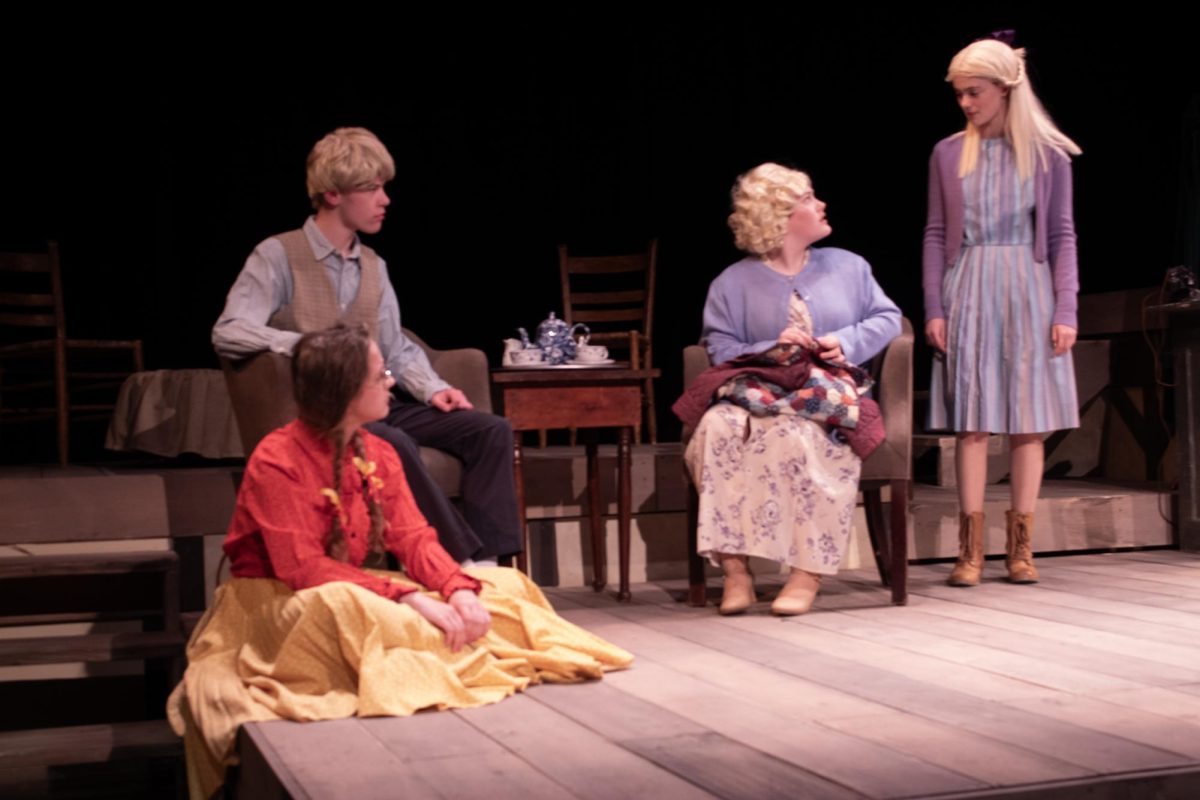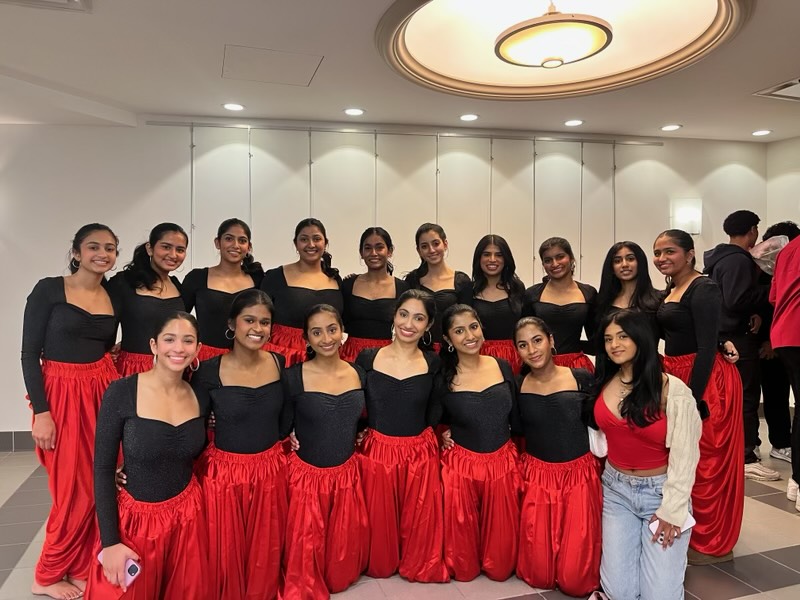When the lights rose on South’s spring play, Number the Stars, audiences were transported to a time when courage knew no bounds and friendship conquered all, Debbie Shellard, Spring Play Director, said.
The play, based on the novel Number the Stars by Lois Lowry, is important to Shellard since she has both performed in the play and taught the book as a teacher. The story tackles significant themes including systematic discrimination and antisemitism, Shellard said.
“[This play] is a cool story about friendship and supporting your community,” Shellard said. “I [performed in] the show twice, and I was inspired both times to [tell this] great story.”
Portraying the main character Annemarie Johansen, sophomore Isabel Arranz brought to life the ten-year-old who witnesses her best friend, escaping Copenhagen to evade the Nazis. Annemarie’s perspective is that of an innocent, naive girl, Arranz said.
“The play [centers on] mistakes [society] made in the past and how we learn from those to create a better future,” Arranz said.
Annemarie’s non-Jewish heritage allows the play to explore the Holocaust through the eyes of an observer, Sophomore Amy Patton, who played Annemarie’s younger sister, Kristi Johansen, said.
“Since Annemarie is the main character and she is not Jewish, [the play] follows the perspective of someone who is watching [the holocaust] happen and seeing how it is affects their friends, without truly experiencing what it feels like to be hunted down by Nazis,” Patton said.
The nuanced portrayal of the play conveys the widespread impact of the Holocaust on diverse communities, Patton explained. There is a need for broader recognition of the Holocaust’s historical reach and consequences, she added.
“[Number the Stars] will really help the audience see different perspectives of the Holocaust,” Patton said. “[It is] so often [that] we focus on German and Polish Jewish people who were affected, but we don’t really acknowledge that the Nazis really took over almost all of Europe and there are millions of different people [who] were affected.”
The Spring Play last Thursday performed for elementary school students who were reading the book Number the Stars, sophomore Ema Lovric, portraying Ellen Rosen, the Jewish best friend of Annemarie, said.
“Performing to [younger students] is a way to look back at our history and [teach a topic] that wasn’t focused on [largely in school],” Lovric said.
Conversations about the Holocaust need to be continued, Patton stressed. Forgetting the Holocaust poses a danger, a risk of repeating the grave mistakes of the past.
“It is really important that we’re still talking about the Holocaust,” Patton said. “This play can really help remind people that [the holocaust] was real. Millions of people were affected and we shouldn’t forget it, otherwise, it will happen again. I hope that the audience will learn to speak out against injustice, even if it is scary.”
Through this production, Shellard hopes to spark understanding and change throughout the audience, leaving them with a renewed sense of hope and unity.
“[I hope the audience understands] that even today, [amid] many conflicts all over [the] world, there is hope,” Shellard said.











